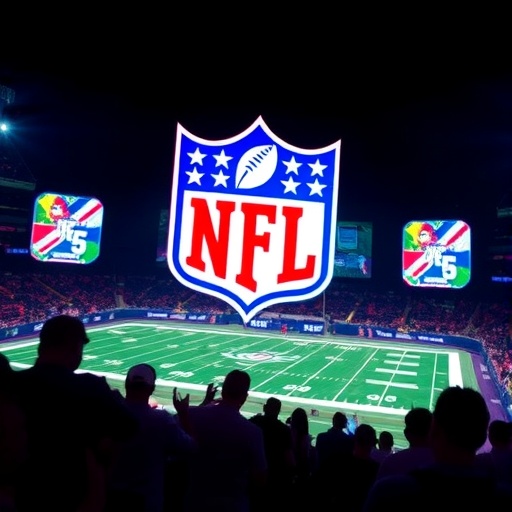Sports Gambling Scandals Fail to Derail Lucrative NFL Sponsorship Deals with Sportsbook Apps
In the wake of high-profile Sports Gambling scandals that have tarnished athletes and officials alike, major sports leagues like the NFL show no signs of severing their multimillion-dollar ties with sportsbook apps. Despite the ethical quagmires and regulatory scrutiny, these partnerships continue to pour in record revenues, fueling a booming industry that’s projected to hit $150 billion globally by 2028.
High-Stakes Scandals Grip Professional Sports
The world of professional sports has been rocked by a series of betting-related controversies in recent months, casting a shadow over the integrity of competitions from the gridiron to the hardwood. In one of the most shocking incidents, an NFL assistant coach was suspended indefinitely after allegations surfaced that he shared insider information with gamblers, leading to irregular betting patterns during a crucial divisional matchup last season. This scandal, which involved wagers totaling over $500,000, prompted an immediate investigation by the league’s integrity unit and drew parallels to past fixes like the 2015 NBA referee scandal.
Experts point to a surge in such incidents as Sports Gambling explodes in popularity. According to the American Gaming Association (AGA), legal sports betting has generated $93 billion in wagers across 38 states since the 2018 Supreme Court ruling that struck down the Professional and Amateur Sports Protection Act (PASPA). Yet, scandals persist: a college basketball player was recently banned for life after accepting bribes to underperform, and MLB faced its own crisis when a minor league pitcher was caught influencing game outcomes for offshore betting rings. These events have sparked public outrage and calls for stricter oversight, but league officials argue that the vast majority of bets are placed responsibly.
“We’re seeing a perfect storm of accessibility and temptation,” said Dr. Rachel Volberg, a gambling research expert at the University of Massachusetts Amherst. “With apps like DraftKings and FanDuel just a tap away, the line between fan engagement and foul play blurs. But banning sponsorships won’t solve the root issues—education and enforcement will.” Her words echo the sentiment in league boardrooms, where the financial allure of sports gambling partnerships far outweighs the reputational risks.
Billions in Revenue Cement Sponsorship Deals
At the heart of this resilience lies the undeniable economic power of sports gambling sponsorship deals. The NFL, for instance, has inked multi-year agreements with major players like BetMGM and Caesars Sportsbook, valued at over $1 billion collectively. These deals encompass everything from in-stadium advertising to integrated app promotions during broadcasts, turning every touchdown into a potential betting opportunity. In 2023 alone, the league reported sponsorship revenues exceeding $2.2 billion, with gambling entities accounting for nearly 20% of that figure—a stark increase from pre-legalization eras.
The financial incentives are staggering. Sportsbook apps not only pay top dollar for visibility but also drive fan engagement through exclusive promotions, such as boosted odds on NFL games or fantasy league tie-ins. A recent Deloitte report highlights that sports gambling contributed $4.3 billion to U.S. state tax revenues in 2022, with projections for $6.5 billion in 2024. For leagues, this translates to enhanced player salaries, facility upgrades, and expanded youth programs—benefits that stakeholders are loath to relinquish amid scandals.
Consider the NBA’s partnership with MGM Resorts, which includes data-sharing for official league betting lines. Even after a 2023 scandal involving a player-linked betting ring, the deal was renewed without interruption. “Revenue from these sponsorship deals is the lifeblood of modern sports,” noted NFL Commissioner Roger Goodell in a recent press conference. “We’re committed to maintaining integrity while capitalizing on this growth sector.” Such statements underscore how economic imperatives trump short-term controversies, ensuring that sports gambling remains woven into the fabric of professional athletics.
NFL’s Unwavering Embrace of Sportsbook Partnerships
The NFL stands as the poster child for the symbiosis between sports and gambling, having pivoted aggressively post-PASPA. What began as cautious exploration has evolved into full-throated endorsements, with official sportsbook partners like FanDuel gaining prime placement during Sunday Night Football broadcasts. This season, fans tuning into games on NBC or ESPN are bombarded with seamless integrations—live odds scrolling across screens and halftime ads urging bets on the next drive.
Behind the scenes, the NFL’s sponsorship deals with sports gambling apps are meticulously structured to mitigate risks. Clauses mandate compliance with league betting policies, including geofencing to block wagers from restricted areas and mandatory reporting of suspicious activity. In response to recent scandals, the league has bolstered its monitoring with AI-driven analytics from partners like Genius Sports, which flags anomalous betting spikes in real-time. Despite a 15% uptick in investigated incidents last year, per league disclosures, no major sponsorship has been terminated.
Player involvement adds another layer. The NFL Players Association has negotiated carve-outs allowing athletes to participate in promotional content for sponsors, provided they abstain from personal betting—a policy tested during the 2022 season when a star quarterback appeared in a BetMGM ad amid minor league-wide scrutiny. “These deals empower players and fans alike,” said NFLPA executive director DeMaurice Smith. “We’re not naive about the risks, but the benefits—financial and communal—are too great to ignore.” This stance reflects a broader industry trend, where even amid scandals, the NFL’s sponsorship deals with sports gambling apps are seen as indispensable.
Regulatory Hurdles and Industry Expansion
As sports gambling scandals make headlines, regulators are scrambling to keep pace with an industry growing at 11.5% annually, according to Statista. The NCAA has pushed for federal legislation to standardize rules across states, citing over 200 betting-related violations in college sports since 2021. Yet, enforcement remains fragmented: while New Jersey boasts robust oversight through its Division of Gaming Enforcement, states like Texas lag in legalization efforts, creating a patchwork that unscrupulous actors exploit.
Federal involvement is heating up too. The Wire Act’s reinterpretation in 2019 opened the floodgates, but bills like the SAFE Betting Act aim to impose nationwide standards, including bans on prop bets involving individual player performances—a direct response to scandals like the one involving an NFL referee accused of point-shaving in 2023. Critics argue that such measures could crimp revenues, but proponents, including the AGA, counter that self-regulation by leagues and apps will suffice.
Internationally, the U.S. model influences global markets. The English Premier League’s deals with Bet365 mirror NFL sponsorships, generating £500 million yearly, while Australia’s AFL navigates similar scandals without derailing partnerships. In the U.S., apps like PointsBet have invested in responsible gaming initiatives, donating $100 million to addiction support since 2020, which helps assuage public concerns and solidify deals.
Market analysts remain bullish. “Scandals are bumps in the road, not roadblocks,” opined Neil Saunders, a sports business consultant. “With mobile betting apps capturing 80% of wagers, leagues can’t afford to step back now.” This optimism is backed by data: U.S. sports gambling handle reached $119 billion in the first nine months of 2023, up 26% year-over-year, per the AGA.
Looking Ahead: Deeper Integrations and Ethical Safeguards
As the 2024 NFL season kicks off, expect even tighter entwinement between sports gambling and league operations. Emerging technologies like blockchain for transparent wagering and VR experiences for virtual betting lounges promise to enhance sponsorship deals without amplifying risks. The NFL is piloting a ‘Responsible Betting Hub’ app feature with partners, offering real-time spend limits and problem gambling resources—moves designed to preempt future scandals.
Looking further, experts foresee a $200 billion U.S. market by 2030, with leagues like the NFL leading expansions into esports and international territories. However, this growth hinges on balancing profits with ethics: enhanced whistleblower protections, AI surveillance, and collaborative oversight with apps could become standard. If scandals escalate, minor adjustments like pausing certain ad formats might occur, but wholesale abandonment of sponsorship deals seems improbable.
In the end, the narrative of sports gambling in America is one of calculated risk and immense reward. Leagues, buoyed by robust revenues, are betting big on their ability to navigate controversies while reaping the benefits of a legalized, app-driven ecosystem. For fans, players, and bettors alike, the game continues—with higher stakes than ever.








